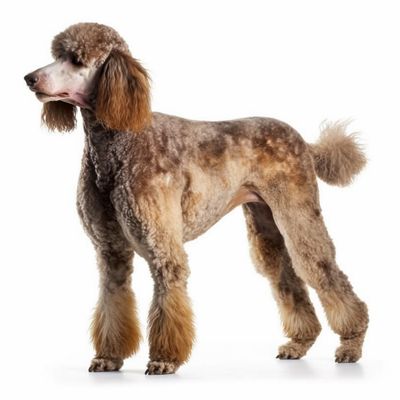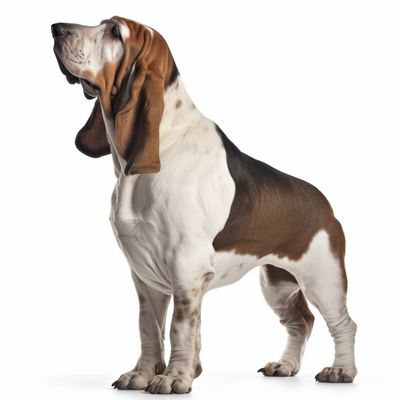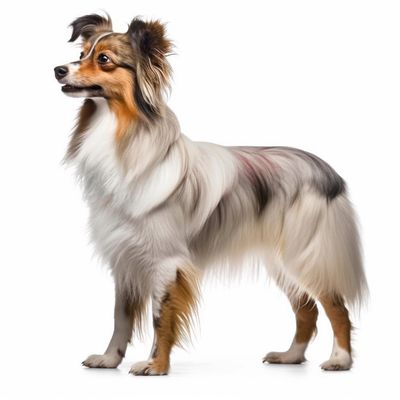Poodle - vs - Basset Hound - vs - Papillon

Poodles come in 3 sizes: Toy (up to 10 inches), Miniature (10-15 inches), and Standard (over 15 inches).
Poodles are energetic and playful, enjoying daily walks, games, and activities.
Poodles need regular exercise to stay happy and healthy, like walks, playtime, or dog sports.
Highly intelligent and eager to please, Poodles can excel in obedience and agility training.
Ranked among the smartest breeds, Poodles are quick learners and problem solvers.
Poodles adapt well to various environments, from city apartments to suburban homes.
Poodles are gentle, patient, and loving companions for children of all ages.
Friendly and social, Poodles generally get along well with other dogs and pets.
Poodles can tolerate cold weather, but should have access to warmth and shelter.
Poodles can handle hot climates, but need shade, water, and breaks during hot weather.
Poodles have minimal shedding, making them a good choice for people with allergies.
Poodles require regular grooming, including brushing, bathing, and professional clipping.
Poodles have average bark tendencies and may bark for various reasons, such as alerting their owners or during playtime.
Poodles are generally healthy, but regular veterinary checkups and preventative care are still necessary.

Basset Hounds are medium-sized dogs, weighing 40-65 lbs, with a height of 11-15 inches.
Basset Hounds have a low energy level, enjoying leisurely walks and plenty of relaxation time.
Basset Hounds need minimal exercise, including short daily walks and playtime, to keep them happy and healthy.
Basset Hounds are intelligent but can be stubborn, making training a challenge. Consistent, positive reinforcement is key.
Basset Hounds are intelligent dogs, capable of learning a variety of commands and tasks, but their independent nature can make training challenging.
Basset Hounds can adapt to different living situations, but they require enough space to move comfortably and regular grooming.
Basset Hounds are gentle and patient, making them good with children when properly supervised.
Basset Hounds can get along well with other pets, especially when raised together. Early socialization is important.
Basset Hounds can tolerate colder temperatures, but their short coats require proper protection during extreme cold.
Basset Hounds can tolerate hot climates, but they need to be monitored for signs of overheating during exercise.
Basset Hounds have a short coat and shed moderately, requiring regular brushing to manage shedding.
Basset Hounds require regular grooming, including frequent brushing and occasional bathing to keep their coats clean and healthy. Their ears also require regular cleaning.
Basset Hounds bark occasionally, usually only when necessary or provoked.
Basset Hounds may experience some health issues and require additional care and attention, such as regular veterinary checkups, preventative care, and potential medication or treatments.

Papillons have a high energy level and enjoy being active, participating in playtime, and exploring their environment.
Papillons need regular exercise, including daily walks and playtime, to maintain their physical and mental well-being.
Papillons are highly trainable dogs, eager to learn and excel in various activities such as obedience, agility, and tracking.
Papillons are highly intelligent dogs, known for their problem-solving abilities and quick learning.
Papillons can adapt well to various living situations, including apartments and larger homes, as long as their exercise needs are met.
Papillons can be good with children, but their small size makes them more susceptible to injury. Supervision and proper handling are important.
Papillons can get along well with other pets, especially when raised together. However, their small size may require caution around larger animals.
Papillons can tolerate colder temperatures, but their small size and thin coat require proper protection during extreme cold.
Papillons can tolerate hot climates but need to be monitored for signs of overheating during exercise.
Papillons have a long, silky coat that sheds moderately and requires regular brushing to prevent tangles and mats.
Papillons require regular grooming, including brushing and occasional bathing, to keep their coats clean and healthy.
Papillons have average bark tendencies and may bark for various reasons, such as alerting their owners or during playtime.
Papillons are generally healthy, but regular veterinary checkups and preventative care are still necessary.



